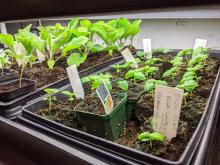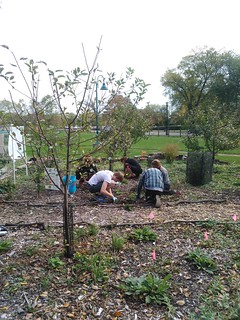Seed Saving/Seed Sharing
A drop-off location for your extra seeds is available at the Food Forest Little Library. Tentative future locations include some community gardens, and a couple of porch locations throughout Evanston.
Please plan to share your seeds from this year’s garden with us.
We are asking that after you plant your garden, please donate your unused seeds in their original packet to Edible Evanston. We will ensure the seeds are carefully stored to protect the viability, so you don’t need to worry about that.



